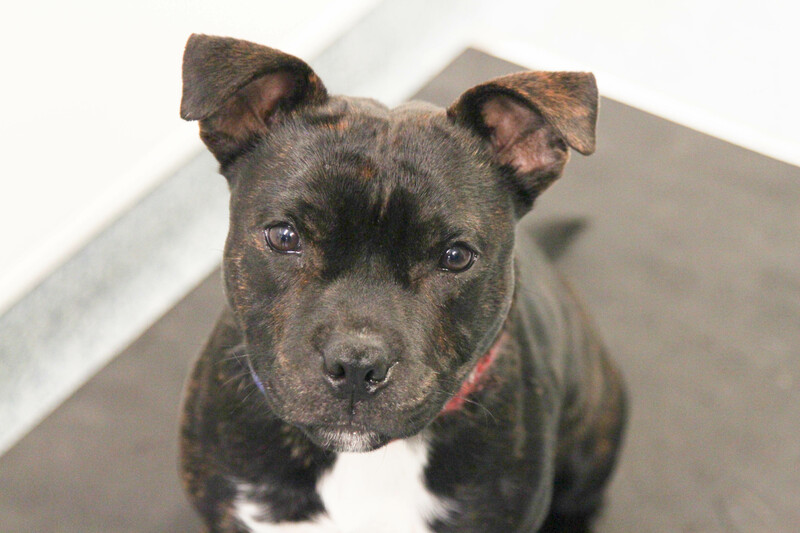Vaccinations are crucial to protect your pet. We are urging owners with recently vaccinated puppies to book an appointment for a top-up vaccine at 16weeks of age. We are also urging dogs who have missed their first year booster vaccination or any dog who has never been vaccinated, to book in for a vaccination course.
For puppies about to start their vaccination course, we are continuing to advising a top-up Parvo vaccine at 16 weeks of age. You can still let your puppy out into the environment as planned, 2 weeks after their second vaccination and would advise being vigilant.
It is unsafe for puppies to mix with unvaccinated dogs unless they themselves have received their initial vaccination course, (this should be one week after the second vaccination).
To book an appointment please use our online appointment page, click here or contact us through our online web chat at the bottom RHS of this page.
What causes it?
The Canine Parvovirus is transmitted in the faeces of infected dogs, or from indirect contamination. The incubation period of the virus is generally 5-7 days (but can range from 2-14 days); once the virus infects a new dog, it attacks both their immune system and their intestines, causing massive breakdown of the gut wall. This allows bacteria from the gut to invade the body, leading to septicaemia ("blood poisoning"). In a few cases, there may also be damage to the heart.
What are the symptoms?
The initial symptoms are lethargy and loss of appetite; this is followed by severe vomiting and diarrhoea is initially watery but rapidly becomes bloody and develops a foul smell, caused essentially by dead, decaying gut lining. In some cases, pieces of gut lining are passed in the diarrhoea. The dog will now become severely ill, collapse, and will rapidly go into septic shock and die without treatment
How is it diagnosed?
There are rapid diagnostic tests available which we can carry out in minutes using a sample of faeces, or even a swab from the rectum, which will diagnose the presence of the Parvovirus.
How can it be treated or managed?
These dogs are incredibly ill and need full intensive care nursing - as well as isolation from all other dogs. High dose intravenous fluids via a drip will help combat the septic shock, and antibiotics will help prevent bacterial septicaemia. Anti-vomiting medications are also invaluable. Immune stimulating drugs, although expensive, can also be very useful in rallying the immune system; however, we would expect at least one in three affected puppies to die despite all treatment efforts.
Can it be prevented?
Yes - there is a highly effective vaccine available. Once the dog has had their puppy course and first annual booster, the vaccine lasts for approximately three years before needing a booster. In the event of an outbreak an additional top-up Parvo-virus vaccination is recommended. Please contact us if you are unsure of your pet's vaccination status.
Further information?
For further information on Parvo-virus click here
Please note: If your pet is unwell and you already suspect your pet may have Parvo-virus please tell us when you book your appointment.

